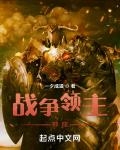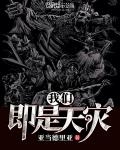Chapter 251 Lowell's Thoughts
The Norman Baron’s fiefdom is in Moses Port - just by hearing the location of the fiefdom, you can tell that their family is not poor.
The financial situation of Baron Norman's family is indeed good, but to be honest, it is not that wealthy... Among the four generations of male owners, there were three literary youths who devoted all their energy to "indulging in art" and naturally did not have much energy to run the family business.
Even if Baron Norman was very sincere in paying for his life, he could only implicitly use the reserved words "I am willing to thank you with everything I can afford", which was enough to illustrate their family's financial situation.
Of course, after all, it is a noble family that has been passed down for more than ten generations, so the family background is clear. To say that they are not particularly well-off financially is a horizontal comparison. Compared with those old nobles in Moses Port who have also been running the business for more than ten generations and have fiefdoms and industries, compared with the baron of Innadelli, the Norman family is still considered wealthy.
The Norman Baron temporarily raised and brought to Innadri, intending to use it to pay the life-saving reward to the Gold Coin Church, which was 1,200 gold coins.
It was equal to the income of a middle-class family who had saved for five years without eating or drinking, and equal to a quarter of Westram’s original annual agricultural tax… It was enough to buy the latest magic pneumatic car launched by the Kenyan Empire, which could be driven on the streets of any country’s capital without shame.
Yang Qiu truly felt this sincerity.
Since Baron Norman was so sincere, Yang Qiu was certainly not someone who would deliberately procrastinate. He agreed with the Baron on the spot to go to the City Lord's Mansion for the "exorcism". Then he immediately called Brother Lowell, who was a stay-at-home in Westham, and asked him to ensure the safety of the Baron's life during the exorcism...
Expelling an unintelligent monster that parasitizes on the human body is nothing to Yang Qiu. The difficulty of the task is lower than setting up a genuine teleportation array for living people.
The real difficulty lies in ensuring that the host will not be sucked dry by the monster who instinctively resists during the exorcism process; and when it comes to limiting the intensity of the monster's resistance, no one is more suitable than a high-level priest.
In fact, it is not impossible to ask Bishop Li Gene for help, but Yang Qiu is not willing to share Baron Norman's "sincerity" with others... Brother Lowell, who does not talk about money, is still more reliable.
Brother Lowell, who had given Yang Qiu the "cold treatment" for a while, was silent for half a minute after receiving the call.
"Lowell?" Yang Qiu asked on the phone.
"I'll be there." Lowell replied expressionlessly and hung up the phone.
The ascetic took off his coat and hung it on the coat rack, then walked a few steps into the yard: "Walton?"
The captured leader of the Fiery Solari Order, Ben Ham Walton, strode over while shaking the mud off his hands: "Yes, Brother."
Walton, who succeeded Wagner Pitt and worked as a butler, gardener, cook, butler and all-purpose worker for Brother Lowell for three months, now looked like a working man... In the cold weather, he was only wearing a pullover with his sleeves rolled up to his elbows. His hands and thick-soled boots were covered in mud, and there were some spots of mud on his trousers.
When Wagner was here, Brother Lowell always sent him to help out in the neighborhood. Walton had a similar fate when he came - he had just come back from helping his neighbor repair a leaky cellar.
"We're going into town tomorrow. Go to the town hall and borrow a carriage," Lowell ordered.
"Okay, monk." Walton went to the faucet in the corner of the courtyard to wash his hands, went into the house to get his coat and put it on, then hurried out the door.
After changing out of his muddy shoes and his outdoor clothes into home clothes, Lowell sat down by the coal-burning stove as usual and took a book from the bookshelf on the wall.
Brother Lowell read the book "Golden Plum" that Rex mailed to him from beginning to end several times.
Flipping the pages of the book, his eyes fell on the words he had read several times, and Brother Lowell let out a sigh of relief.
This folk vernacular novel, which has been circulated in China for hundreds of years through handwritten copies, does have its own unique charm. The most incisive and straightforward presentation of human nature hidden beneath the skin of erotic stimulation and market culture, and the subtle sympathy for the oppressed that seems cold but is actually compassionate in the plain writing style, have a soul-stirring impact on older literary youths who can interpret the deep meaning of the article.
The uglier the characters in the text are in the face of life, the more heartbroken the reader will feel.
To what extent can a normal person be pushed by life? If a reader who is not involved in the story were to put himself in the shoes of the characters, would he have other choices? Would he be able to live a more "decent" life than the characters in the book? These are things that people who interpret this classic novel with compassion find hard not to think about.
Thinking about this point, if the reader has a higher social status, higher vision and ideals, it is difficult not to think more deeply about the next question: What makes life so difficult for the struggling lower class? What kind of society is needed to avoid the tragedy in the article?
The culture of intelligent groups is common, and human civilizations that transcend dimensions also have many commonalities. In the world of "Jin X Mei", evil people are successful and bully the people in the countryside. Women rely on their only original capital to snatch the favor of a man to fight for survival resources. The lower classes fight each other to the death... In this world, the same counterparts can also be found.
As Brother Lowell read "Gold" over and over again, his mind always came up with anecdotes that he knew about the Principality of Shiga, his hometown where he had lived for three hundred years, whether they were circulated or not.
The more he connected with reality, the more Brother Lowell felt panic in his heart.
The characters in "Jin" seem to all have the shadow of women from the Principality of Shiga.
The wicked woman who killed her husband, the humble woman who would do anything to please a man, regardless of her dignity and decency.
Brother Lowell had never heard of the saying "the old society turns people into ghosts", but he saw from "Jin" that... life turns women into ghosts.
Chinese literati in the feudal era did not necessarily call for women's rights, but when they felt sorry for their own fate, they would instinctively compare themselves to women, expressing their own misfortune in the most powerful way.
Similar "culture" exists in this world as well... Operas created by unsuccessful celebrities and featuring women as the protagonists all have their own shadows in them to some extent.
Lowell did not rely on creating female tragedies to sympathize with his own unsuccessful people. He was a high-ranking priest of the Prosperous Church and a black-robed ascetic monk who ranked high in the Prosperous Holy Land. But... he had never felt that it was not right that everyone knew that women were oppressed more severely, but no one tried to change this reality.
It was not until he read the book "Gold" from another world, and until he saw with his own eyes that Tattle Joe, who succeeded the Lord of Westram, spoke up for women's rights under the influence of the undead mayor.
Brother Lowell had been squatting in Westham without moving, not because he was really at odds with Yang Qiu for so long, but because, as a conservative, he had always disagreed in his heart with Yang Qiu's decision to allow the undead to drastically change the social structure of Westham. He was shocked by the fact that something had been right under his nose but he had ignored it. He felt mixed emotions and secretly felt ashamed, while silently observing the changes in Westham.
Before Yang Qiu called with the invitation, Brother Lowell had just returned from a road construction site outside the town.
There was a light snow in Westham a few days ago and the weather outside was very cold, but this did not stop people from working for pay.
Brother Lowell had been going to the road construction site for a while. During this time, he saw many hardworking farmers and townspeople working in the severe cold to exchange for food and wages, and he also saw many women busy on the construction site.
There were peasant women from the surrounding countryside as well as women from the town.
They did the same work as men, using wheelbarrows to transport the excavated mud and stones, carrying hoes and shovels to dig the roadbed, standing in the cold mud and water, pulling the stone mill and shouting to compact the ground.
Women are not as strong as men. When doing the same physical labor, they will appear more embarrassed than men. They have to squat down, blush, and look ferocious in order to push the big rocks out of the roadbed that men can push without much effort.
When breaking those large pieces of rock, their movements of carrying the hammers were much uglier than those of men. They had to use all their strength to break them, which was not at all graceful.
But for the sake of the salary and two meals of dumplings from the construction site, which are enough for them to take home, the women are not willing to give up the heavy physical work that makes them look embarrassed and ugly, and they work harder and harder than the men.
The people who managed the construction site did not mind that they had to spend more time than men to complete the same work. As long as they could complete the designated workload, everyone could receive fair compensation.
Brother Lowell spent quite some time observing these Westham women who did not fit his preconceived notions at all . The more he observed, the more he felt... his worldview was being shaken.
Lowell himself actually disagreed with many of the policies implemented by the town hall, such as the undead mayor's insistence on hiring young people who had been prostitutes and male prostitutes as clerks.
But the result was that these clerks, whose backgrounds and experiences were not so good, actually completed their jobs and were not much worse than the children of good families with cleaner backgrounds and higher education - in fact, because of their not-so-good backgrounds, they were more willing to devote more concentration to their work and complete the tasks assigned to them.
The town's main road was being rectified and both male and female workers were being recruited . Although Brother Lowell said nothing on the surface, he disagreed in his heart. He believed that problems would easily arise if men and women worked together, and it would slow down the rectification process of the town's main road.
But the main road in the town was completed on time, and the factory workshops that were converted from former clubs and brothels had machines moved in, connected to electricity, and started production before winter.
Now, in this road construction project where both men and women are working at the same time, Lowell no longer dares to secretly oppose it in his heart, and just acts as a quiet bystander.
During the more than half a month of continuous observation, Lowell did not see any major conflicts among these people who had little education and no quality, nor did he see any planned project volume being slowed down because of the workers.
Being a quiet bystander who thought nothing and made no wild guesses allowed Lowell to vaguely see something.
Putting men and women together does not necessarily lead to an illicit relationship or opposing positions. What kind of actions people can take actually depends entirely on how the organizers arrange it.
Organizers should not be greedy, assign workers an impossible workload, or seek personal gain by deducting wages from workers. Organizers should not be biased, paying full wages to some while leaving others without receiving any. Organizers should not allow workers to have internal conflicts over unequal wages. Whether or not men and women are put together is not an issue at all.
People are never divided by gender. The differences between women and women, and between men and men, are far greater than those between women and men. There are lazy people and hardworking people in both men and women. It is stupid to divide people by gender.
The results of his observations, combined with the insights he had read in "Gold", gradually made Brother Lowell realize... the fact that Yang had always clearly presented to him, but he insisted on not admitting:
There is a reason why Yang and his undead despise the systems of the countries on the current Napalm continent.
Whether it is the Kingdom of the Rhine or the Principality of Shiga, which Brother Lowell believes is superior to the Kingdom of the Rhine in terms of the overall environment, they will intentionally restrict the abilities of some people (women, people of low status), confine them to a specific range and not allow them to cross the line, and in turn blame women (people of low status) for not being able to get things done.
The undead do not have the prejudice of restricting certain groups from displaying their talents or despising certain groups for being useless. Instead, they are better able to explore the potential of human society and show better talents than human archons.
This reality made Brother Lowell somewhat embarrassed, but he had to admit... He could not be disgusted by the social reforms promoted by the undead. He knew that in an environment promoted by the undead, the tragedies in the alien novel "Gold" and the tragedies he had heard and seen over the long years would be much less.






